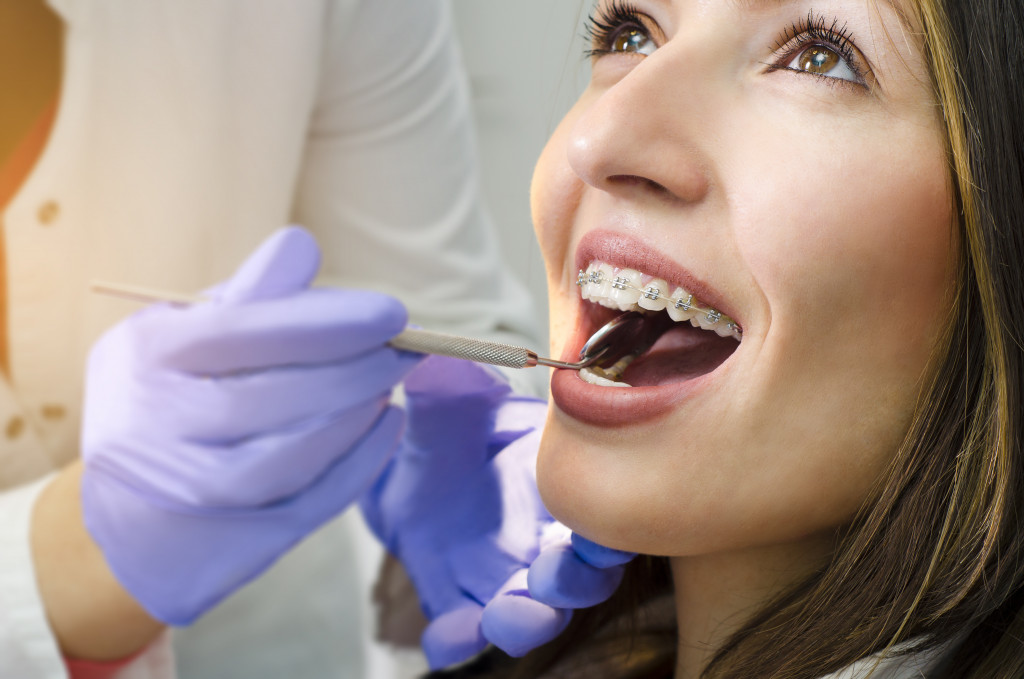People say that you are what you eat. And that is pretty much visible in your teeth’s health. That is because many types of foods can cause plaque, which results in severe teeth damage. Plaque is a sticky film produced by bacteria that may lead to gum disease and tooth decay.
After eating a sugary meal, the sugar activates the bacteria to release acid and attack the tooth’s enamel. When this happens, it’s only a matter of time before cavities develop.
Cavities are common among people between ages 6 and 19. They can cause complications, such as tooth abscesses, pain, and chewing problems. And if you have poor oral hygiene, the plaque in your teeth will harden and become tartar. Tartar may then result in gingivitis or periodontal disease.
How will you prevent such situations? Apart from good oral hygiene, you might want to avoid or limit the consumption of the foods below.
Bread
Don’t make it a habit to include bread in your daily snack. When you eat bread, the starches will break into sugar, turning into a gummy-like substance. As a result, the bread will stick to your teeth, sometimes, in between them where a toothbrush can’t reach.
Uncleaned substances will then result in cavities. If you want to eat carbs, go for less-refined options like whole wheat. They contain less amount of sugars and do not easily break down.
Sour Candies
We all know that candy is bad for the teeth. But there is a specific kind of candy that contains more acids that can do so much damage to your teeth. It’s called sour candies. And since sour candies are naturally chewy, they can stick to the teeth for a longer period, making you vulnerable to decay.
If you want sweets, ditch sour candies and for a piece of chocolate instead. They are easier to chew and can be washed away with water instantly.
Alcohol
Alcohol is good in moderation. But excessive consumption of alcoholic beverages is harmful to your dental and overall health. It can cause a condition called dry mouth. This is where your mouth lacks saliva, which is crucial in keeping your teeth healthy. Saliva is important because it prevents food from sticking to your teeth, which prevents gum disease, decay, and oral infections.
If you are a heavy drinker, try to limit the number of alcoholic beverages you drink. It would also be ideal to visit a dentist from trusted clinics such as Upland Dental Practice to ensure that your teeth are not susceptible to decay and cavities.
Ice
Ice may seem harmless because it’s 100% water, right? But that is false. According to the American Dental Association, chewing a hard substance, like ice, can harm teeth enamel and cause dental emergencies like cracked, broken, and chipped teeth. If you have crowns or other dental restorations, they can get damaged too. There is nothing wrong with using ice to chill your drinks but never chew them.
Carbonated Drinks

Drinking carbonated drinks can be refreshing, especially during hot days. But did you know that drinking excessive amounts of soda can damage your teeth as crack cocaine does? Carbonated drinks stimulate plaque to produce more acid to damage tooth enamel. In other terms, if you drink soda all day long, you are practically coating your teeth in acid.
Furthermore, soda can dry out your mouth. And last but not least, sodas are the leading cause of tooth discoloration. They can stain your teeth dramatically that they may appear yellow over time.
Potato Chips
Eating crunchy potato chips is exceptionally satisfying to almost all of us. Unfortunately, they are filled with starch. And the starch in your potato chips can turn into sugar, which gets trapped between teeth, feeding the bacteria in the plaque. If you cannot stop eating chips, make sure to floss and brush your teeth after eating so the acid production will not last.
Citrus
Fruits are good for health, right? But citrus fruits and juices contain high levels of acid that can erode enamel, causing teeth to be vulnerable to gum disease. Even adding a few drops of lime or lemon into your water adds acid to the drink. And if you have mouth sores, the acid can cause irritation.
But since citrus fruits are packed with vitamin C, which is essential for health, you cannot completely remove it from your diet. However, drink or eat them in moderation and always drink water afterward.
Many other foods can harm the teeth. But the ones mentioned above are the most important to remember. If it’s hard for you to stay away from these foods, make sure to practice proper oral hygiene to reduce the risk of gum disease and oral infections.




